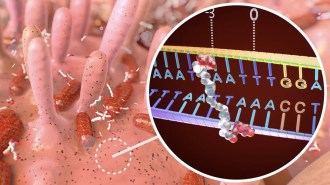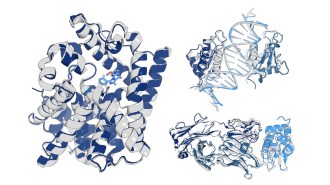Molecules/Matter & Energy
Detecting gunshot residue, free-falling through sand and thinning blood magnetically in this week's news
Signs of shooting
Spiking ammunition with tiny metal-containing compounds could help detect gunshot residue, scientists propose. Standard techniques for revealing whether a shot was fired rely on detecting lead, but the introduction of lead-free ammunition in recent years has stymied those techniques. Researchers in Brazil who tested spiked ammunition report that the little metal complexes glowed brightly under UV light, revealing residue on the shooter’s hand, clothes, gun and the target surface. The markers are inexpensive and very small amounts suffice, the team reports in an upcoming Analytical Chemistry. —Rachel Ehrenberg
Free-falling against the grain
Very heavy objects burrowing through granular material can behave as if freefalling through the air, say physicists in Mexico and Cuba. The researchers dropped a ball into a silo filled with plastic beads. The ball reached a terminal velocity on its way down and, in an infinite silo, would have continued falling forever at that speed, the researchers report in the May 27 Physical Review Letters. While no known material is heavy enough to behave this way in sand or soil, the new findings may apply to other loosely packed materials. —Devin Powell
Thinner blood through magnets
Like aspirin, magnets can thin the blood — potentially helping those at risk of a heart attack. But it takes more than a dubious mail order bracelet. Physicists at Temple University in Philadelphia exposed a sample of flowing blood to a thousand-pound magnet about as strong as that inside an MRI machine. The iron-laden red blood cells lined up in the magnetic field, lowering the blood’s viscosity by 20 to 30 percent. This effect, which has not been tested on living creatures yet, lasted for several hours and could be repeated, as reported in an upcoming paper in Physical Review E. —Devin Powell






